Since the first Assassin's Creed, we have been more than sixteen years and almost as many main parts in the series. Nevertheless, we have never seen a game like the first part again. The sequels kept getting bigger and bigger, and became less and less about playing an assassin. Assassin's Creed Mirage goes back to the basics of the series.
Assassin’s Creed Mirage is set in Baghdad at the end of the ninth century. This time the leading role is for an old acquaintance: Basim. When we meet him in Assassin’s Creed Valhalla, he is already a seasoned assassin with a double agenda. In Mirage he is still a young street rat, who spends his days doing some menial work until something happens that suddenly makes him join the mysterious Hidden Ones.
Yet Ubisoft manages to make the most confusing intro ever in the series. In the first few hours, names and locations are thrown around, and the game jumps from one topic to another.
When the game really starts, Assassin’s Creed Mirage is a piece of cake. The game is built on the same foundation as Valhalla, Odyssey and Origins, but without a lot of baggage. So the same controls and menus, but not a hundred thousand different weapons, skills and question marks on an intimidatingly large map.
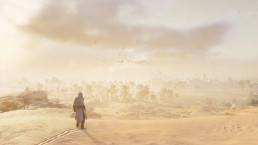
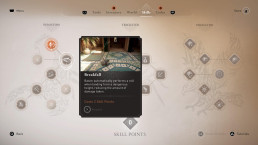
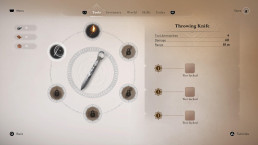
Without axes, beards and boat trips, Assassin’s Creed is once again about playing assassin. The extermination of members of The Order was of course still in the more recent parts, but had actually become more of a side issue. Here that system is magnified. You must first track down and unmask each target before you can strike.
That detective work has more meat on the bones in Mirage than in the previous games, although you still don’t have to be called Sherlock Holmes to solve a case. Actually killing your target is a new challenge. There are always a few different approaches to explore, but ultimately they all have the same ending, the end of your target.
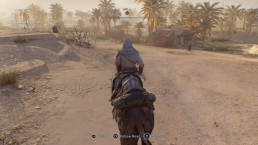
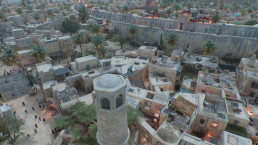
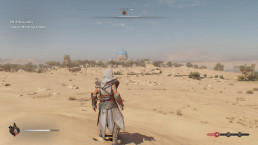
Assassin’s Creed Mirage therefore keeps the momentum going, but many murders also feel rather interchangeable due to the relatively high pace. You rush from target to target, without ever really thinking about anything. A longer adventure in a large bazaar stands out in a positive way and brings out the best of Mirage. The mission carefully builds up to taking out your target, and is also set in one of the most authentic locations in the game.
The colorful spices and carpets in the stalls pop from the otherwise sandy brown screen, while chromatic aberration gives the whole a warm, almost dreamy appearance. All this makes Baghdad very attractive.
Other missions felt more routine in comparison, like stabbing a random soldier on the streets of Baghdad. The game could have slowed down the tactical throttle a bit more often, in order to really highlight the atmospheric locations and the actual assassinations.
Unfortunately, it doesn’t help that the targets in question are incredibly interchangeable. From the start of the game, people point very loudly in their direction and shout ’these are the bad guys, they have to die!’, and no one makes a critical comment. As a player you have to get that motivation from previous games. The existence of the Isu/Those Who Came Before is reduced to a trivial fact that no one really notices, and nothing is done with Basim’s double agenda from Valhalla.
It is an art to make a good prequel, as the ending point has already been determined. Mirage unfortunately misses the mark in that area and above all adds nothing to the existing canon of Assassin’s Creed. Mirage does add something to your general development: the brief history lessons about certain buildings, the city and local cultures are finally an integral part of the game again.
Assassin’s Creed Mirage is now available for PlayStation 4, PlayStation 5, Xbox One, Xbox Series X/S and PC. The game will also come to iPhone 15 Pro in 2024.
Score:
7,5
+ Tracking down targets provides excellent structure.
+ It’s finally all about assassinations again.
+ Baghdad is very atmospheric.
– Occasional Frame drops in busy areas.
– Negligible story.